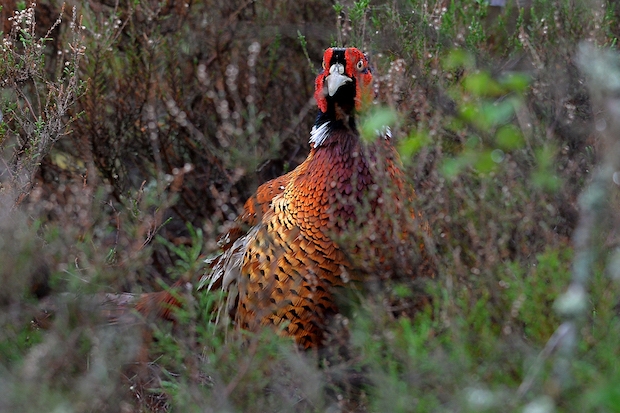I recently had the misfortune of featuring in a BBC documentary that repeatedly breached the corporation’s own editorial standards. I happened to be at the gym when word reached me that BBC Inside Out London wanted to interview me the following day. It was late in the evening, and I was told that the documentary was looking at game shooting and game meat, and the growing popularity of both in London. Not an anti-shooting piece at all, I was assured.
Arriving at Regent’s Park for the interview, the team from the Beeb were decidedly furtive. There was much fiddling with phones and muttered conversations between interviewer and producer, in which I clearly heard someone say: ‘Surely he needs to see it in order to have right of reply?’
‘See what?’ I asked. It turned out the crew had undercover footage in which they believed they had captured poor standards of animal welfare. They couldn’t or wouldn’t show it to me, but expected me to comment on it anyway. I made a snap decision to go ahead regardless; this was clearly going to be an anti-shooting piece all about game farming, not at all what I had been told to expect. But if I didn’t speak then, it might go out with no one putting the case for shooting.
The interview went as you might expect, given the expectation that I would comment on footage I hadn’t seen. With the camera rolling, BBC journalist Chris Rogers slowly revealed the extent of the undercover filming and alleged all manner of welfare abuses that he had apparently seen with his own eyes. I responded as best I could without knowing what had actually been witnessed – well aware that previous ‘exposés’ of this nature had been spearheaded by animal rights groups using very dubious techniques to obtain sensational-looking footage. I explained there was a scientifically-validated Defra code of practice, and pointed out that in my seven years of experience teaching gamekeeping I had never visited a farm that breached it, whereas farms targeted by animal rights groups were unlikely to be representative.
But I was told that animal rights groups weren’t involved in the undercover filming, and besides, they assured me that if I had seen what they had, I wouldn’t be defending it. But, of course, I hadn’t seen what they had, because they hadn’t shown it to me. It was a faintly ludicrous interview.
Back in the office, we called the BBC to register our concerns and were invited to Broadcasting House to view the undercover footage. There were a couple of shots that didn’t look great, and anyone without experience of livestock farming might think they were witnessing something sinister but, in reality, there was nothing to substantiate the lurid claims that had been put to me in the interview. BBC editorial guidelines are very strict on when trespass and covert filming can be undertaken, and the undercover footage we were shown didn’t provide any such justification. We asked whether they had felt the need to trespass due to information passed to them by animal rights groups such as Animal Aid and the League Against Cruel Sports. We were reassured that while they had asked the League for a comment on one element of the programme, they had not used their filming or involved them in the undercover operation. And, of course, we were told once again that the piece was not anti-shooting.
So perhaps we should have been surprised when the programme appeared in BBC listings as ‘exposing cruel breeding practices’ associated with shooting. The documentary carried the catchy, if not exactly ‘not anti-shooting’, title of ‘The Killing Fields’. Which just so happens to be the title of Animal Aid’s own anti-shooting report. All of our suspicions were confirmed when the programme aired. In addition to what we had been shown was additional undercover footage from the League, in precise contradiction to what we had been told to expect. Spokespeople from the League, Animal Aid and (bizarrely) a Professor of Tropical Zoology lined up to give shooting a good kicking, all having been shown the secret footage in advance. The programme was sensationalist and horrendously biased.
Of course, we weren’t surprised. Between our meeting at Broadcasting House and the airing of the documentary, we had sent numerous letters highlighting our concerns. All we received in reply was a denial that any undercover filming had occurred, which is a farcical claim given that in a clip used to promote the documentary the presenter is shown running away from the sound of a tractor to avoid detection, and a recommendation that we watch the broadcast and complain afterwards.
This was of course the whole point of the obfuscation and the misdirection of our attempts to put the documentary back on the right track – the Beeb wanted to air it with maximum sensation for their urban viewers. The viewers of Inside Out London won’t hear any future apology, and their initial impressions of game farming won’t be undone. A sector of British farming will have been smeared by the BBC, and only game farmers will suffer the consequences.
Liam Stokes is the Countryside Alliance’s head of shooting.






Comments